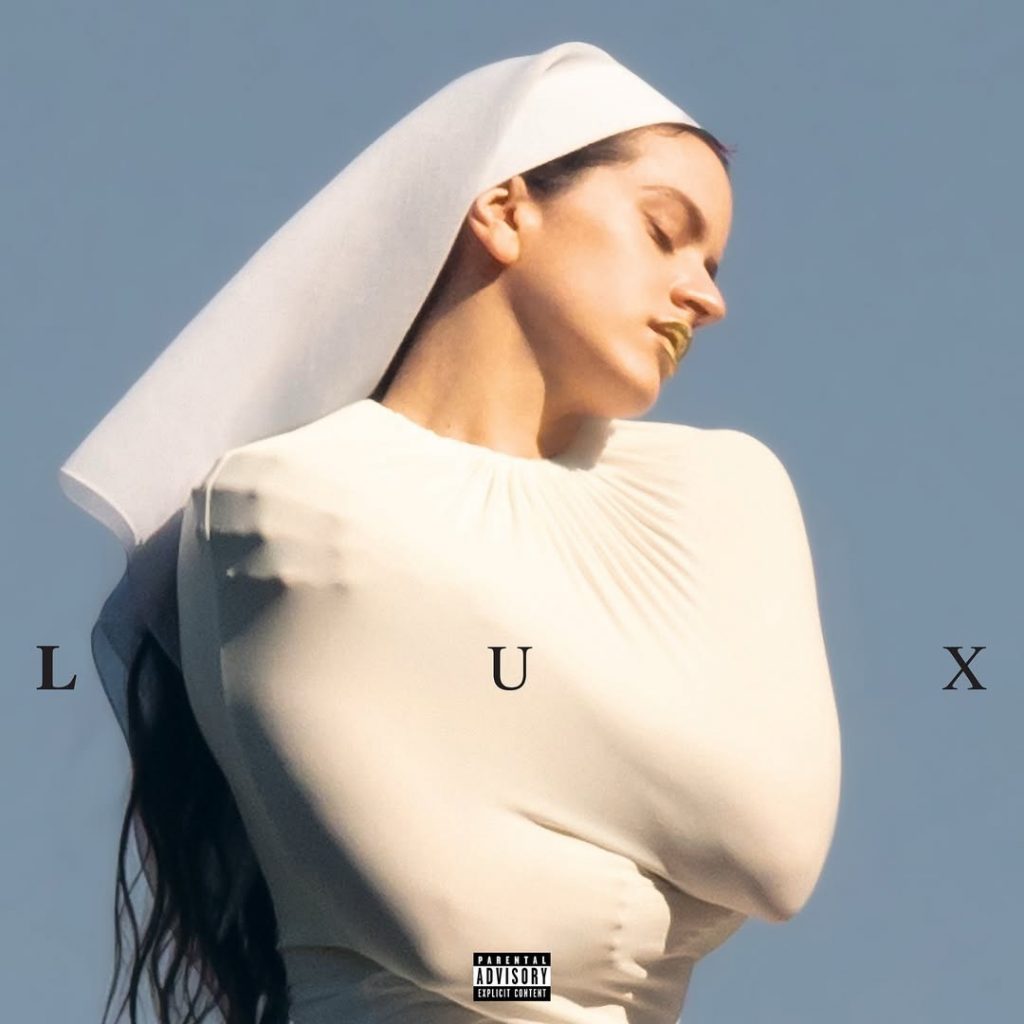
Rosalía has never been content with staying in one lane. A graduate in music production with deep roots in flamenco, she’s built her career on fusing the academic with the instinctive resulting in experimentation that never feels forced. Her understanding of sound and structure gives her the freedom to shape pop into something cerebral yet deeply emotional. With LUX, she turns that mastery inward, creating a body of work that feels both intensely personal and meticulously constructed.
At its heart, LUX is a break-up album, though not the kind built only on bitterness or revenge. Rosalía reframes heartbreak as a transformative process. Across the record, she transforms separation into a sacred act, one that dismantles ego and past identity. La Perla and Porcelana dwell in the ache of betrayal, her fragility at the surface, while La Rumba del Perdón and Magnolias she drifts toward forgiveness and renewal. What could have been an album of despair instead becomes one of transcendence: heartbreak not as a collapse but as a cleansing.
Lead single Bargain captures that contrast in all its drama. By naming the track after Berlin’s notoriously exclusive nightclub, Rosalía draws a line between intimacy and access, the difficulty of getting into someone’s inner world mirroring the club’s elusive threshold. The chorus, “His fear is my fear, His anger is my anger, His love is my love, His blood is my blood,” unfolds like a vow or incantation, hypnotic and devotional. When Yves Tumor’s visceral line, “I’ll fuck you ‘til you love me,” cuts through the final moments, it shocks and seduces at once. The tension between the vulgar and the divine is where LUX thrives.

The production is where Rosalía’s discipline truly shines. It’s cinematic and operatic in scale, lush and intricate yet never indulgent. Strings, synths, and electronic percussion intertwine like they were made for each other. Each track comes together and feels like a world built with some harsh and metallic and others fragile and shimmering. Her voice sits at the centre of it all, commanding and exposed, moving effortlessly between languages, between light and shadow.
One of the most rewarding aspects of LUX is how it invites curiosity beyond the music itself. Much of the album unfolds in different languages, and rather than alienating the listener, it draws them in closer. For those who don’t speak the languages she sings in, it becomes an interactive experience. A reason to search out translations, to sit with the lyrics, and to uncover their meanings. This act of discovery adds another layer to the album’s emotional depth. It turns listening into something participatory, where understanding becomes part of the journey, deepening the connection between Rosalía and her audience in a way that was once an antiquated way to connect with an album’s lyrical content.
LUX isn’t designed for a “pick your favourite track” sort of replay. It’s something to sit with and absorb: more akin to a film or theatre production. Yet that’s what makes it special. Rosalía has made a pop record that rejects instant gratification that has dogged the music industry post-streaming era and rewards patience of the listener with its quality. It’s fearless, deeply considered, and proof that few artists today approach their craft with this much vision. LUX doesn’t just confirm Rosalía as an innovator but it reaffirms her as one of pop’s true architects.
4.5/5






